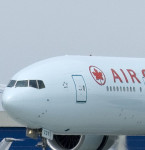In October 2013, the provincial law societies and the Barreau du Quebec signed the new, “National Mobility Agreement of 2013,” that will serve to replace all prior mobility agreements formulated, either by Quebec or the provincial law societies. The hopes are that the new agreement will expand career opportunities for lawyers across the country allowing for greater mobility.
The agreement allows for both temporary and permanent movement between the provinces and Quebec, with the goal of facilitating, “…a national regulatory regime for the interjudictional practises of law to promote uniform standards and procedures…” Previously, the restrictions on lawyers regarding their ability to practice outside of the province within which they held membership had been made increasingly difficult due to the focus on the differences between Quebec and the Provincial legislation and between common and civil law. Quebec had previously only allowed non-members to practice common law at the federal level, if the case directly involved their member province and in public international law cases. Under the new agreement, lawyers will be able to practice in any province including Quebec, in any area of law that they are considered competent.
As per the new agreement, qualified lawyers will not have to pass transfer exams to be called to an additional bar for them to be permitted work within the province on a permanent basis. They will be required to provide the following:
- Proof of entitlement to practise in their home province
- Be a lawyer in good standing
- Disclose any bar membership affiliations held both in Canada and Internationally
- Disclose any criminal or disciplinary record
- Consent to access of all regulatory files, regarding their practice
Although all parties involved did formally sign the agreement in October of this year, Tom Conway, Treasurer of the Law Society of Upper Canada says, “Implementing the agreement could take up to a year…and the process will be more complex for Quebec.” Nonetheless, Ontario has already begun the implementation process as of February 2013, with their membership voting unanimously to accept the agreement. Before it can go into effect across the country, all bar associations will have to do the same which could take an estimated 8-10 months, not including Quebec who must also receive a seal of approval from the governing body of professional accreditations.
The coming together of the Federation of Law Societies of Canada and the Barreau du Quebec marks a triumph for lawyers across the country, and the coming success of an agreement that was over a decade in the making.


